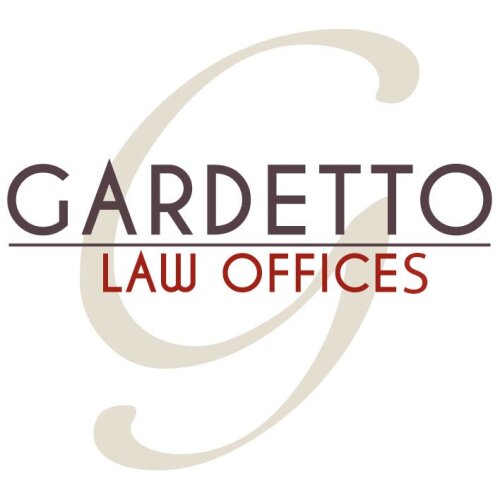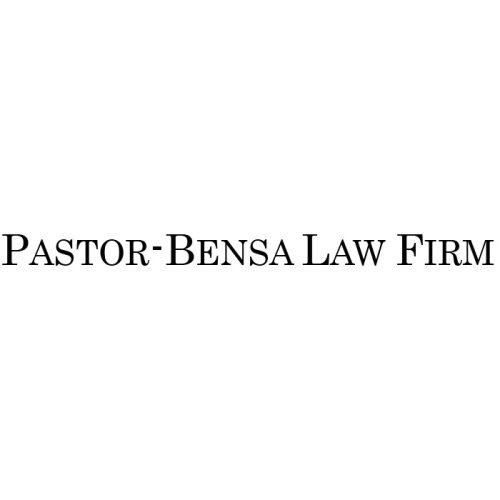Best Discrimination Lawyers in Monaco
Share your needs with us, get contacted by law firms.
Free. Takes 2 min.
List of the best lawyers in Monaco, Monaco
About Discrimination Law in Monaco, Monaco
Monaco is known for its luxurious lifestyle and diverse population. Despite this, discrimination can occur in various forms within this small but affluent principality. Discrimination law in Monaco addresses unfair treatment based on race, gender, age, nationality, disability, religion, or any other personal characteristic. The principality aims to protect individuals and ensure equality through its legal structure. However, navigating these laws can be complex, especially for those unfamiliar with local regulations.
Why You May Need a Lawyer
Seeking legal help for discrimination matters can be crucial for several reasons:
1. Employment Issues: If you face unfair treatment, wrongful termination, or harassment at your workplace due to any personal characteristic.
2. Housing Discrimination: Denial of housing or unfair treatment when renting or buying property based on bias.
3. Access to Services: Unequal treatment in accessing public services, education, healthcare, or social benefits.
4. Personal Safety: If you experience threats, violence, or hate crimes because of who you are.
Legal professionals specializing in discrimination can help you understand your rights, guide you through the legal process, and increase your chances of a favorable outcome.
Local Laws Overview
Understanding local discrimination laws in Monaco involves knowing key legislations and regulatory bodies:
Employment Law: Prohibits any discrimination in hiring, promotion, and workplace practices based on gender, race, age, etc.
Housing and Accommodations: Laws against any form of bias when renting or purchasing properties to ensure equal housing opportunities.
Civil Rights: Protects individuals from unfair treatment in public services, schools, and healthcare based on personal characteristics.
Monaco’s Constitution: Ensures equality before the law and protection from discrimination for all its residents.
Human Rights Bodies: Monaco collaborates with international human rights organizations to monitor and safeguard against discrimination.
Frequently Asked Questions
What constitutes discrimination in Monaco?
Discrimination in Monaco involves unfair treatment based on personal characteristics such as race, gender, age, nationality, disability, or religion. It includes actions that disadvantage individuals in employment, housing, education, and public services.
Is there a specific anti-discrimination law in Monaco?
While Monaco doesn’t have a specific anti-discrimination statute, various laws collectively address and prohibit discriminatory practices in different sectors, ensuring protection for individuals.
How do I prove that I was discriminated against?
Proof may include documentation, witness testimonies, and any records of communications or actions that demonstrate unfair treatment based on prohibited grounds.
Can I report discrimination anonymously?
Anonymous reporting can be challenging and may limit the investigation's thoroughness. However, initial consultations with a lawyer can be confidential, and they can advise on how to proceed.
What are possible consequences for those found guilty of discrimination?
Consequences can range from fines and compensatory damages to changes in policies or practices and, in severe cases, criminal charges and imprisonment.
How long do I have to file a discrimination complaint?
Time limits for filing complaints vary depending on the nature of the discrimination and the specific laws involved. It’s crucial to seek legal advice promptly.
Can foreigners living in Monaco file discrimination complaints?
Yes, Monaco’s laws protect all residents, including foreigners, against discrimination.
Are there any defenses against discrimination claims?
Employers or service providers might argue that their actions were based on legitimate non-discriminatory reasons, such as qualifications or conduct, rather than bias.
What should I do if I face retaliation after filing a discrimination complaint?
Retaliation for filing a complaint is illegal. You should report any such actions to your legal counsel immediately for further steps.
Can I settle discrimination cases out of court?
Yes, many discrimination cases are resolved through mediation or settlement agreements without going to court. A lawyer can help negotiate fair terms.
Additional Resources
Here are some resources and organizations that can assist with discrimination issues in Monaco:
Commission for Human Rights of Monaco: Provides guidance and may investigate claims of human rights violations, including discrimination.
Ministry of Social Affairs and Health: Oversees employment and social welfare issues, ensuring protections against discrimination.
International Organizations: Such as the United Nations Human Rights Council, can provide additional support and resources for discrimination cases.
Local Non-Profit Organizations: Various groups advocate for equality and provide assistance and counseling to discrimination victims.
Next Steps
If you believe you are a victim of discrimination and need legal assistance, here’s how to proceed:
1. Gather Evidence: Collect any documentation, witness statements, or other evidence related to the discriminatory act.
2. Consult a Lawyer: Seek a legal professional specializing in discrimination law to discuss your case and understand your options.
3. Report the Incident: File a formal complaint with the appropriate local or international body if necessary.
4. Follow Legal Advice: Adhere to the guidance provided by your lawyer to ensure the best chance of a favorable outcome.
Remember, acting swiftly and seeking professional advice is vital in protecting your rights and securing justice.
Lawzana helps you find the best lawyers and law firms in Monaco through a curated and pre-screened list of qualified legal professionals. Our platform offers rankings and detailed profiles of attorneys and law firms, allowing you to compare based on practice areas, including Discrimination, experience, and client feedback.
Each profile includes a description of the firm's areas of practice, client reviews, team members and partners, year of establishment, spoken languages, office locations, contact information, social media presence, and any published articles or resources. Most firms on our platform speak English and are experienced in both local and international legal matters.
Get a quote from top-rated law firms in Monaco, Monaco — quickly, securely, and without unnecessary hassle.
Disclaimer:
The information provided on this page is for general informational purposes only and does not constitute legal advice. While we strive to ensure the accuracy and relevance of the content, legal information may change over time, and interpretations of the law can vary. You should always consult with a qualified legal professional for advice specific to your situation.
We disclaim all liability for actions taken or not taken based on the content of this page. If you believe any information is incorrect or outdated, please contact us, and we will review and update it where appropriate.











